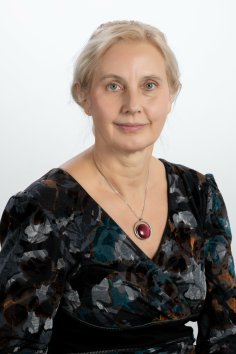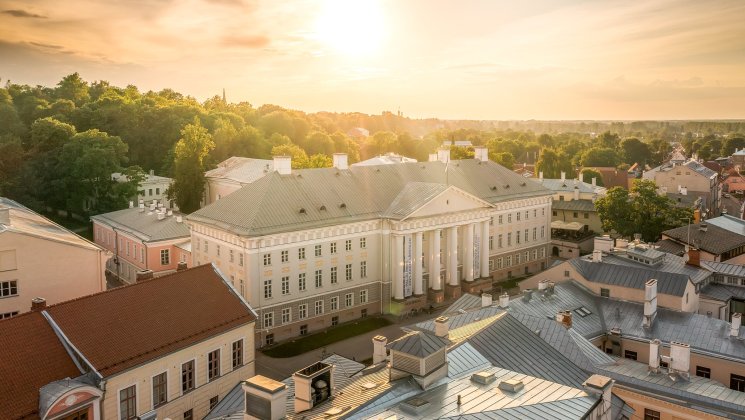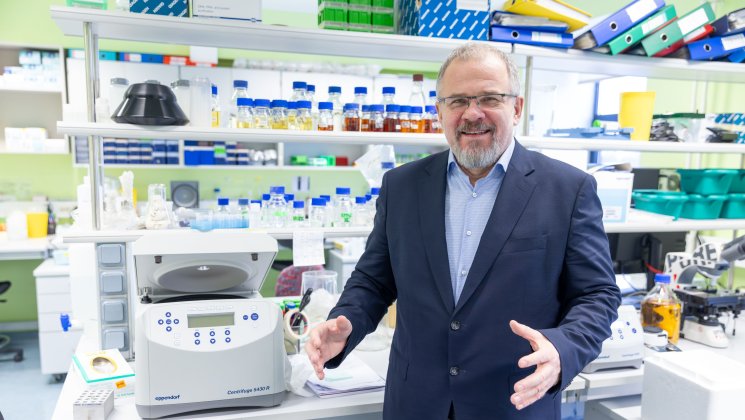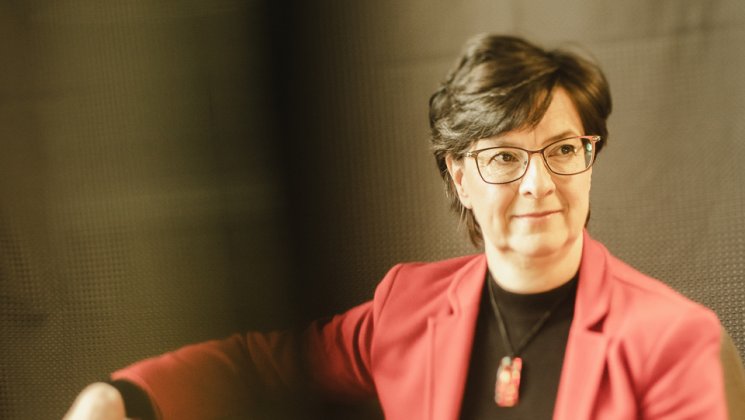Maia Kivisaar to continue as Director of the Institute of Molecular and Cell Biology

On 7 November, the council of the University of Tartu Institute of Molecular and Cell Biology re-elected Professor of Microbial Genetics Maia Kivisaar as the director of the institute for 2024-2026.
Maia Kivisaar has been working at the Institute of Molecular and Cell Biology since its beginning and has been its director for the last three years. In 2008, she was elected as Professor of Microbial Genetics. From 2012 to 2020, she was a member of the University of Tartu senate. Professor Kivisaar's main research interest is mutation mechanisms in bacteria. Part of her current research is also related to mechanisms of transcriptional regulation in bacteria under stress conditions. The director's new term will start on 1 January 2024.

What will you remember from your current term of office?
For me, it was a period of many discoveries. I had an idea of how managing an institute could look like, because I had served on the university's decision-making bodies for many years. But when I took up the director's position three years ago, I also experienced many new things. I was very happy to see how many people are helping to organise the work of the institute on a daily basis. Leadership actually involves working with a very large number of people. Thanks to this experience, I got to know many of my colleagues much better. In my opinion, the director cannot run the institute alone. After all, it is a collaboration with the support staff, the researchers and the teaching staff.
From the beginning of my term of office, I particularly remember the race against time, as it was the COVID period. I always prefer to interact with people face to face, but at the time, there was constant talk about whether and when new restrictions or a complete lockdown would come. It bothered me that I could not interact with people as much as I would have liked.
The crises of the last few years – first COVID and then the war in Ukraine – have influenced the organisation of the institute's work in these situations and how to create a positive work environment despite everything.
What are your expectations for the next three years?
We could have more people coming back to the institute. Our institute has actually managed to maintain more or less the same number of staff over the years, although people are moving on from here to other institutes and private companies. Apart from cutting-edge research, one of the main focuses of the Institute of Molecular and Cell Biology is teaching, and nearly all our staff are involved in teaching. The more people we have, the more evenly could the teaching duties be distributed between people.
The bigger goal is, of course, to have an attractive work environment and to have young people coming back to the institute to ensure continuity in both research and teaching. It is important to have enough students, and that they are ready to join our labs from the first year. Only then we can hope these students will become our colleagues one day. In addition to increasing staff numbers, developing connections with other research laboratories in Estonia and abroad is important. We also need to improve cooperation with Estonian companies, as this is what society expects, and funding schemes are also geared towards more business cooperation.
I am certainly not planning a major turn in the current management in the next three years. It is still important for us to be able to carry out research at the highest level and, at the same time, to carry out a very high level of research-based teaching. I want to make education more attractive to students, and I want people to find our institute a great place to work and teach.
It is important to have enough students, and that they are ready to join our labs from the first year. Only then we can hope these students will become our colleagues one day.
What is your main priority as director?
Involving colleagues in the governance of the institute is a priority. The feeling of "us" is important – this is our institute, we work together, and we discuss topics with each other. I do not want anyone to be left alone with their concerns. We all contribute to the development of the institute. I will do my best to ensure that this message reaches all staff.
You have been involved with the institute since its beginning. What motivates you to work here and take on the director's role for the second time?
I stayed on at the University of Tartu after graduation because I was already very committed to research as a student, and it was possible to continue my research at the university. It still interests me, although I have less time for it now that I have more administrative work. The environment – academic freedom – has kept me at the University of Tartu.
Over the course of my career, I have gradually been given various management responsibilities. I have been elected to various decision-making bodies in the faculty. After that, I was a member of the university senate for almost nine years, which was a very useful experience to see how the university works. This was one of the reasons I decided to run for the director's position three years ago. Work in the senate also allowed me to make more contacts.
Looking back, the last three years have gone very fast. Running for the director's position this time, I already had some experience managing the institute.
In addition to your duties as director and your research, you give lectures and participate in teaching. What keeps you teaching?
As a professor, teaching is one of my responsibilities. Almost the entire academic staff are busy with teaching. If I wanted to reduce my teaching load in the future, I would first have to resolve the question of whom to pass the work on to. This brings us back to the topic of the next generation of academic staff.
In fact, I would not want to distance myself from teaching just yet. It is great to meet students. In addition, I also learn by teaching students. In my research, I tend to focus on a narrow topic, but as a lecturer, I cover a much broader field. For example, my research topic on bacterial mutation and evolution is only a very small part of the genetics that I teach to students. Teaching at university gives me a broader perspective and forces me to keep up with new scientific developments beyond my research field.
Professor Maia Kivisaar was re-elected for a second term as director of the IMCB by the Board of the Institute on 7.11.2023.
Maia Kivisaar’s CV in the Estonian Research Information System (ETIS)
Interviewed by Ines Pütsepp, Marketing and Communications Specialist at the Institute of Molecular and Cell Biology






